Health
Sleep deprivation dangers: How pulling an all-nighter affects your physical and mental health
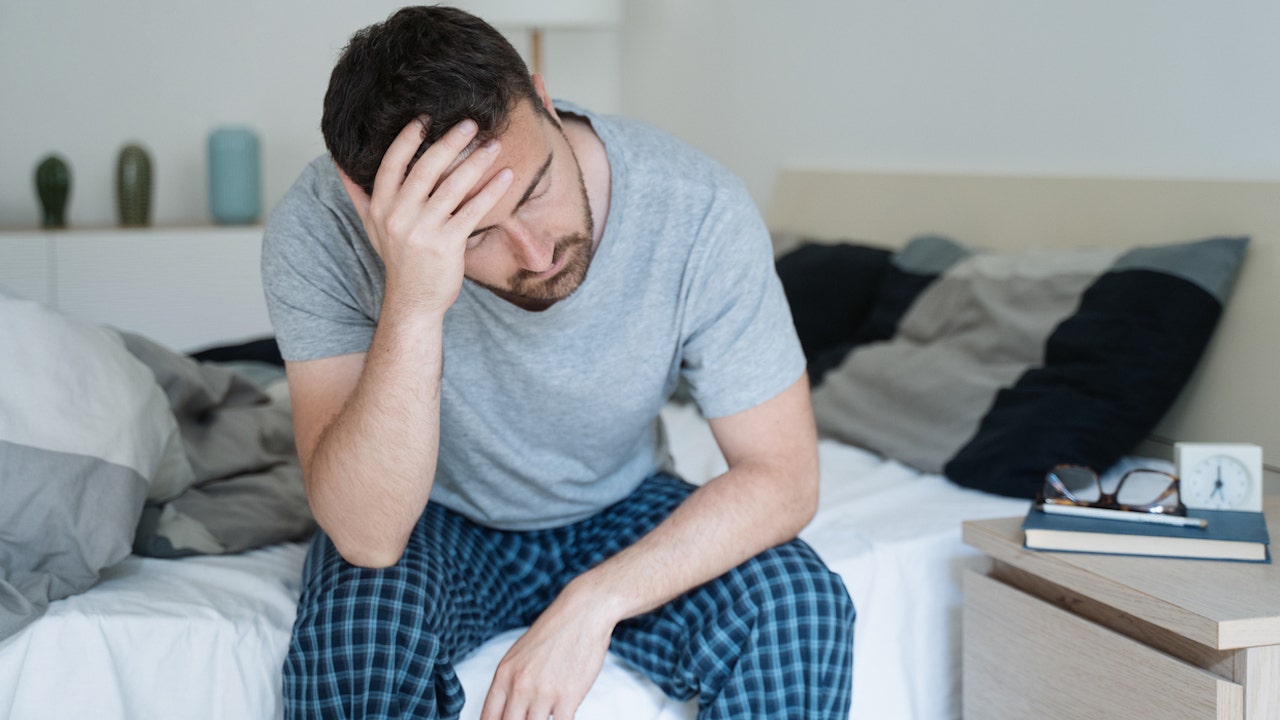
Most people have sacrificed sleep at some point, but those extra waking hours could come at a price.
While it can be tempting to burn the midnight oil — whether it’s to get some work done, knock out a home project or care for a loved one — forgoing rest can wreak havoc on your health.
Fox News Digital spoke to experts about the short- and long-term effects of pulling an all-nighter — and how to rebound after a period of missed sleep.
DOES THE ‘SLEEPY GIRL MOCKTAIL’ REALLY WORK? EXPERT WEIGHS IN ON THE VIRAL SLEEP TREND
Here’s a deep dive.
What does staying up all night do to the body?
Pulling an all-nighter can have several impacts on the body, both physically and mentally, according to Dr. Leah Joseph, a primary care physician with New York-based Teladoc Health.
Pulling an all-nighter can have several impacts on the body, both physically and mentally, doctors warned. (iStock)
“The physical effects include weakening your immune system, which makes you more susceptible to illnesses,” she told Fox News Digital.
“Your body may also release a higher level of cortisol, which leads to elevated stress levels.”
In addition, sleep deprivation can result in impaired memory, concentration and overall cognitive function, Joseph noted.
GOOGLE SEARCHES FOR ‘SLEEP’ REACHED ALL-TIME HIGH IN 2023, NEW STUDY NOTES
“The mental effects include mood changes, which can contribute to irritability, anxiety or depression,” she said.
“It also affects your decision-making, as your judgment may be negatively affected.”
Alex Dimitriu, M.D., who is double board-certified in psychiatry and sleep medicine and is founder of Menlo Park Psychiatry & Sleep Medicine in California, also warned of adverse effects.
“Even a single night of insufficient sleep leads to a buildup of toxins in the brain similar to those seen in people with Alzheimer’s disease.”
“There is evidence that even a single night of insufficient — or worse yet, absent — sleep leads to a buildup of toxins in the brain similar to those seen in people with Alzheimer’s disease,” he told Fox News Digital.
“Similar to Alzheimer’s, even one night of lost sleep can cause fatigue, impaired impulse control, mood instability, diminished attention and memory — all symptoms similar to ADHD.”
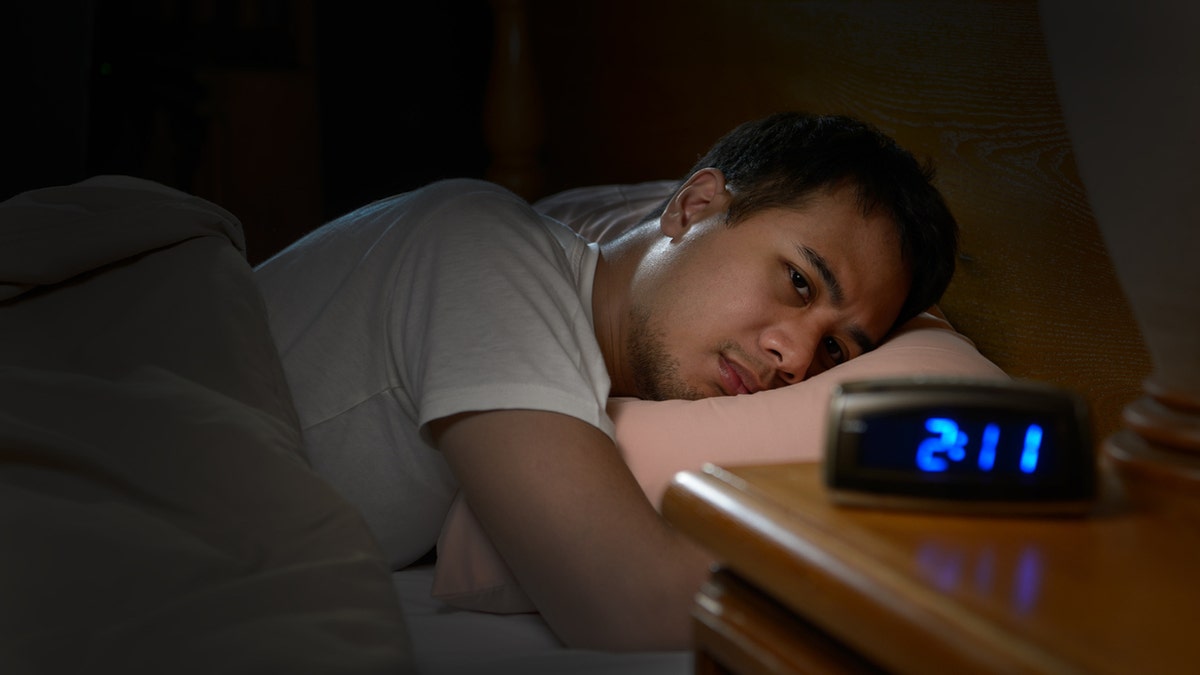
Staying up all night can significantly disrupt your sleep schedule and circadian rhythm, a doctor warned. (iStock)
“Underslept” people are more likely to suffer from a variety of psychiatric conditions, Dimitriu said.
Those include depression, anxiety, substance use, memory impairment and possibly an eventual increased risk of dementia.
“The brain needs sleep to clean up and reset,” he said.
Physically, lost sleep causes increased carb craving, diminished immunity and increased stress hormones, such as cortisol and adrenaline, he added.
“The brain needs sleep to clean up and reset.”
“The increased stress hormones, in turn, can elevate heart rate, blood pressure and blood sugar.”
Is an occasional all-nighter safe?
While pulling an occasional all-nighter may include include fatigue, irritability, impaired cognitive function and a temporary disruption of the sleep-wake cycle, Joseph said it may not cause significant long-term damage on its own.
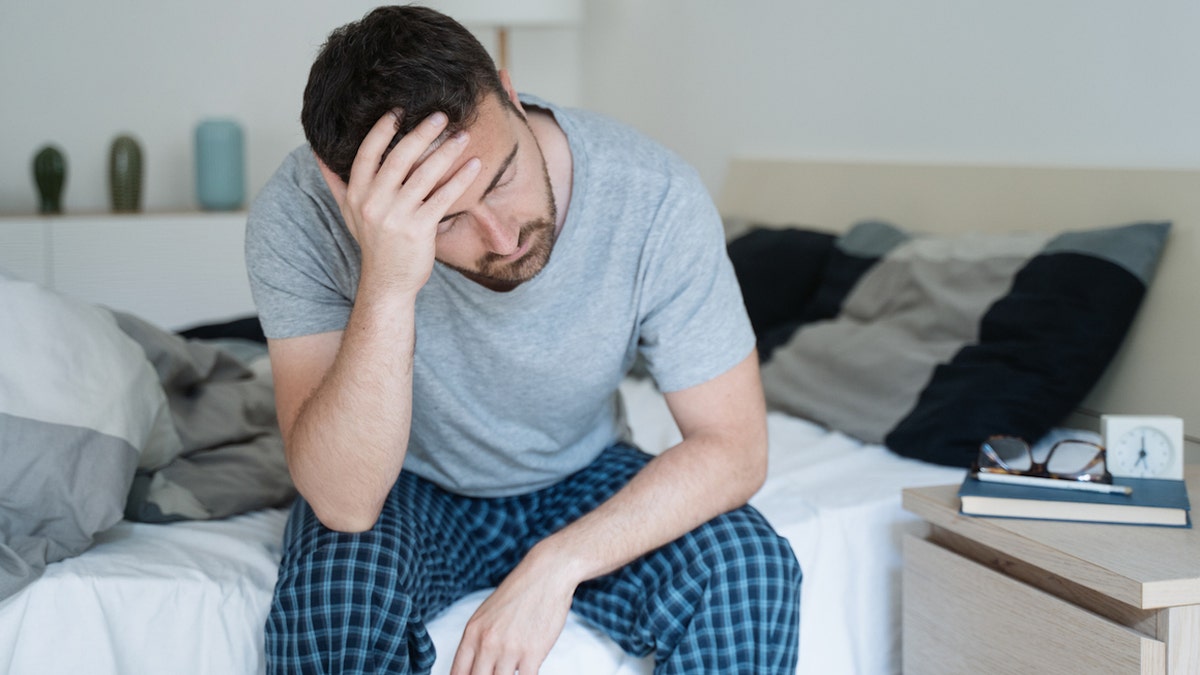
Consistently skipping sleep over an extended period can lead to chronic sleep deprivation, which can have severe consequences over time. (iStock)
“Occasional all-nighters may not cause significant long-term damage if followed by sufficient recovery sleep,” she said. “The human body is resilient and can generally recover from short-term sleep deprivation.”
Consistently skipping sleep over an extended period can lead to chronic sleep deprivation, however, which can have more severe consequences over time.
Those impacts can include an increased risk of cardiovascular disease, diabetes, obesity, impaired immune function and mental health issues, Joseph said.
NEW YEAR CAN BRING BETTER SLEEP AT NIGHT IF YOU FOLLOW THESE 9 SMART STEPS
Sleep deprivation will affect different people in different ways, she noted, as individual factors and resilience play a role.
“An all-nighter never killed anyone,” Dimitriu agreed. “However, they add up, and you will still feel miserable after a night of no sleep, and will not perform at your best.”
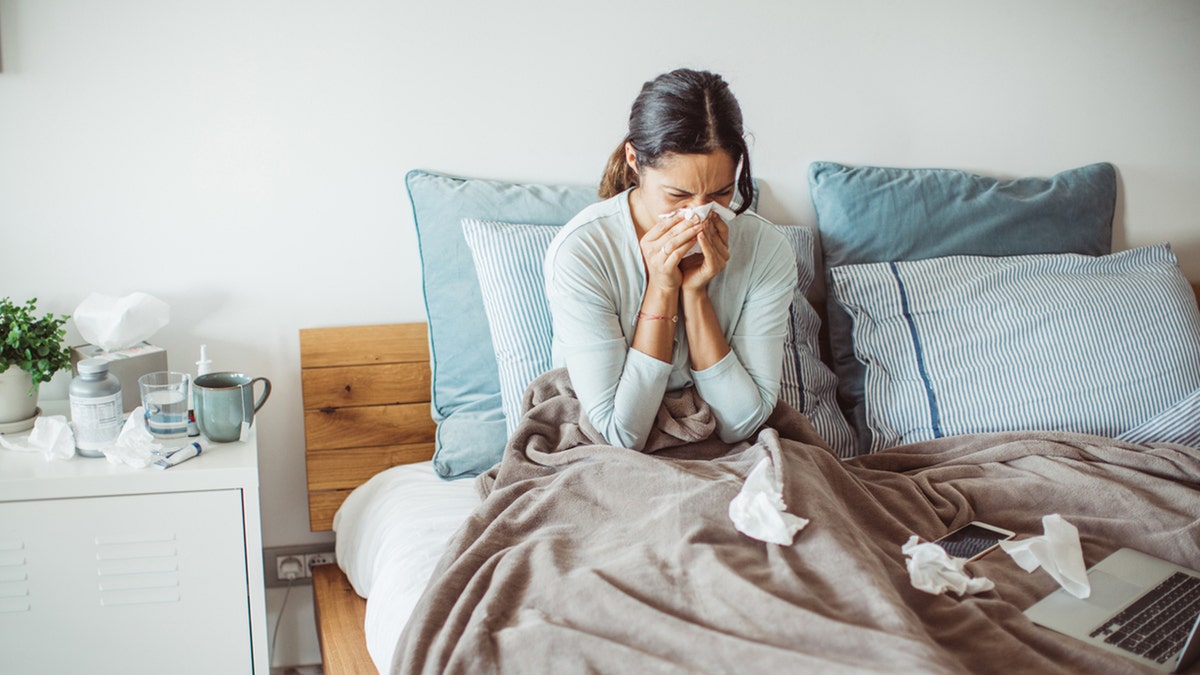
The physical effects of all-nighters include weakening of the immune system, which makes people more susceptible to illness. (iStock)
What to do after an all-nighter
Staying up all night can significantly disrupt your sleep schedule and circadian rhythm, Joseph said.
“The circadian rhythm is a natural, internal process that regulates the sleep-wake cycle and repeats roughly every 24 hours,” the doctor said.
“When you stay up all night, you throw off this cycle, leading to several potential effects on your sleep schedule.”
SLEEPING LONGER OVER THE WEEKEND COULD HELP PREVENT HEART ATTACKS, SAYS STUDY
After pulling an all-nighter, it may take some time for the body to readjust, and this can lead to temporary insomnia or difficulties falling asleep at the usual time, according to Joseph.
“Some potential effects that someone can suffer from include delayed sleep onset, irregular sleep patterns, increased sleep debt and difficulty regaining normalcy,” she said.

Exposure to morning sunlight can help regulate the circadian rhythm and get back to a regular sleep schedule, experts say. (iStock)
To mitigate the impact on your sleep schedule, prioritize getting back on track as soon as possible, said Joseph.
Some strategies include shifting to an earlier bedtime, spending time outdoors during daylight hours to help regulate your circadian rhythm, and establishing a consistent sleep routine by going to bed and waking up at the same time each day, according to Joseph.
“Personally, I also like to limit caffeine close to bedtime and stay hydrated,” she said. “If I do need a nap, I limit it to 20 to 30 minutes.”
CLICK HERE TO SIGN UP FOR OUR HEALTH NEWSLETTER
Dimitriu also recommended getting some sunlight exposure in the morning to reset your rhythm.
“Morning light is really important to getting you to bed at night,” he said.
Getting outdoor physical activity during the day, eating a light dinner and going to bed a little earlier than usual can also help regulate sleep cycles, the doctor advised.

“Prioritizing regular, sufficient sleep is essential for your overall well-being,” a doctor advised. (iStock)
Both experts agreed that the best strategy is to plan for healthy sleep and avoid all-nighters.
“Your performance after a night of not sleeping can be markedly diminished,” Dimitiu said. “All-nighters are often the result of poor planning, so try to plan ahead and avoid nights of lost sleep.”
Joseph added, “While occasional all-nighters may not have severe long-term consequences, making them a habit can contribute to health issues over time.”
“Prioritizing regular, sufficient sleep is essential for your overall well-being.”
For more Health articles, visit www.foxnews.com/health.

Health
What Happens If You Eat Eggs Every Day? Nutritionists Share the Benefits

Sign Up
Create a free account to access exclusive content, play games, solve puzzles, test your pop-culture knowledge and receive special offers.
Already have an account? Login
Forgot your password?
Get back to the Sign In
Use left and right arrow keys to navigate between menu items.
Use escape to exit the menu.
Health
Ask a doctor: ‘I swallowed a bug — now what should I do?'
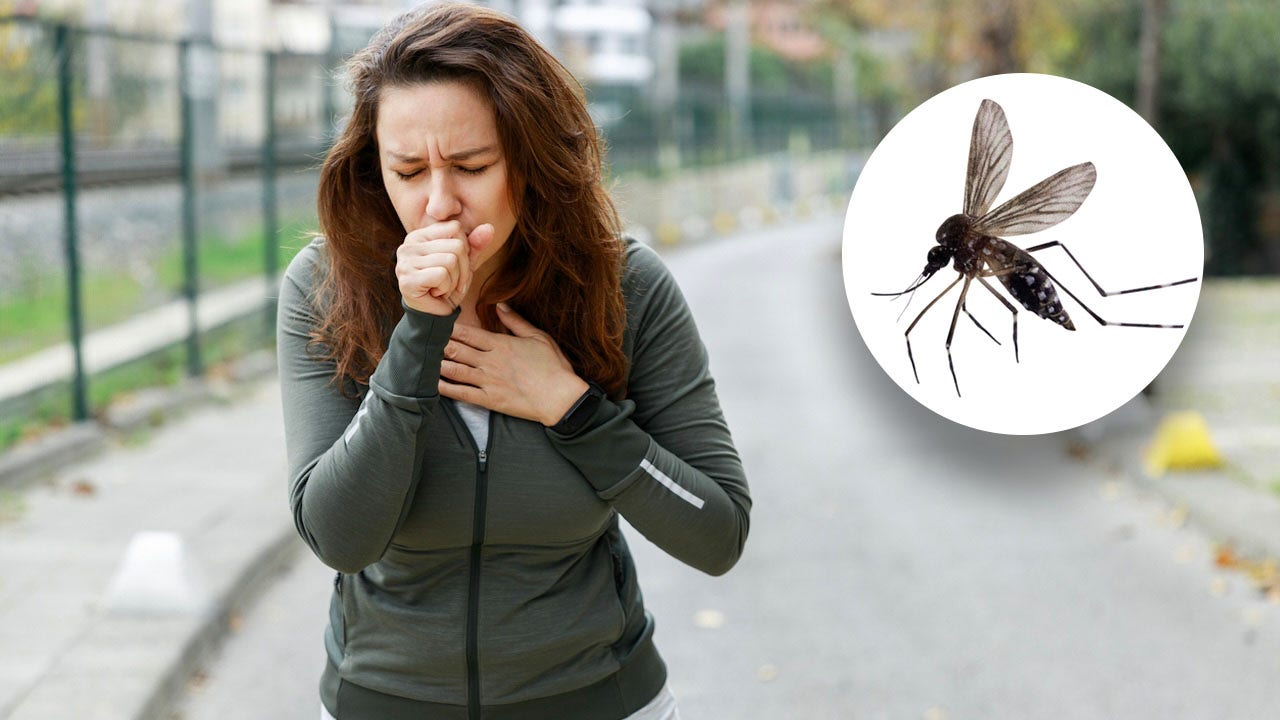
Most people have experienced that moment of discomfort when they realize a bug has wound up where it shouldn’t be — in their windpipe.
That includes Taylor Swift, who on more than one occasion has accidentally swallowed a bug while performing on stage in front of thousands of people.
It can be a startling and somewhat disgusting occurrence — but is this dangerous, or just a nuisance?
LOCAL DENGUE FEVER CASES CONFIRMED IN FLORIDA KEYS, SPREAD BY MOSQUITO BITES
Dr. Raj Dasgupta, a quadruple board-certified physician in California, shared with Fox News Digital the true impacts of accidentally swallowing a bug, and the best thing to do if it happens.
“Swallowing a bug can often happen accidentally when you’re eating or drinking outside, or if a bug flies into your mouth,” Dasgupta, who serves as chief medical advisor for Fortune Recommends, told Fox News Digital via email.
Dr. Raj Dasgupta, a quadruple board-certified physician in California, discussed the impact of accidentally swallowing a bug — and the best thing to do if it happens. (Sleepoplis)
“It can also happen if you’re talking or laughing outdoors. Sometimes it might even happen indoors if bugs are in your food or drink and you don’t realize it.”
ASK A DOCTOR: ‘HOW CAN I PREVENT SCARRING FROM BUG BITES AND POISON IVY?’
Swallowing a bug is usually not dangerous, Dasgupta noted.
“The stomach’s digestive acids usually break down the bug, and it is passed out of the body without causing harm,” he said.
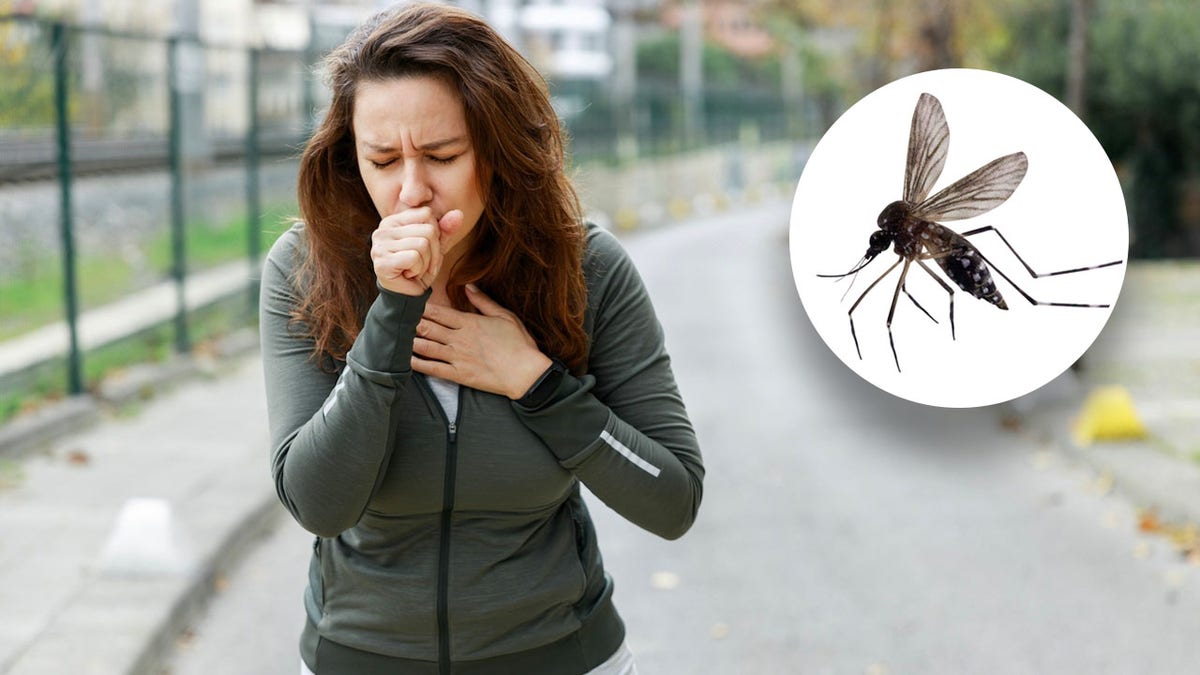
“Swallowing a bug can happen accidentally when you’re eating or drinking outside, or if a bug flies into your mouth,” the doctor told Fox News Digital. (iStock)
If the bug carries harmful bacteria or parasites, however, it could cause gastrointestinal issues or allergic reactions, according to the doctor.
The type of bug can make a difference, he said.
“Bugs like beetles or ants are less of a concern, but bugs that are known to spread diseases — such as mosquitoes — might be riskier.”
If you happen to swallow a bug, drinking some water can help wash it down, Dasgupta said.

Taylor Swift has announced the accidental swallowing of bugs, mid-concert, on more than one occasion. (Marcelo Endelli/TAS23/Getty Images for TAS Rights Management)
“If you start feeling sick, like abdominal pain, vomiting or nausea, keep an eye on your symptoms,” the doctor said.
If you have severe stomach pain, ongoing vomiting, trouble breathing, or swelling, rash or itching, Dasgupta said to see a doctor.
CLICK HERE TO SIGN UP FOR OUR HEALTH NEWSLETTER
“If you know the bug could have diseases or if you have health conditions that might complicate things, it’s a good idea to get checked out to be safe,” he added.
For more Health articles, visit www.foxnews/health
Some bugs — including grasshoppers, beetles, termites, mealworms and even stink bugs — are actually considered edible in certain countries, and are prepared and eaten as part of meals, according to WebMD’s website.
Health
“I’m a Dietitian, and Here’s Why an Overly Restrictive Diet Can Backfire”

Sign Up
Create a free account to access exclusive content, play games, solve puzzles, test your pop-culture knowledge and receive special offers.
Already have an account? Login
Forgot your password?
Get back to the Sign In
Use left and right arrow keys to navigate between menu items.
Use escape to exit the menu.
-

 World1 week ago
World1 week agoOne dead after car crashes into restaurant in Paris
-

 Midwest1 week ago
Midwest1 week agoMichigan rep posts video response to Stephen Colbert's joke about his RNC speech: 'Touché'
-

 News1 week ago
News1 week agoVideo: Young Republicans on Why Their Party Isn’t Reaching Gen Z (And What They Can Do About It)
-

 Movie Reviews1 week ago
Movie Reviews1 week agoMovie Review: A new generation drives into the storm in rousing ‘Twisters’
-

 News1 week ago
News1 week agoIn Milwaukee, Black Voters Struggle to Find a Home With Either Party
-

 Politics1 week ago
Politics1 week agoFox News Politics: The Call is Coming from Inside the House
-

 News1 week ago
News1 week agoVideo: J.D. Vance Accepts Vice-Presidential Nomination
-

 World1 week ago
World1 week agoTrump to take RNC stage for first speech since assassination attempt
















